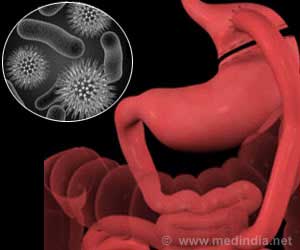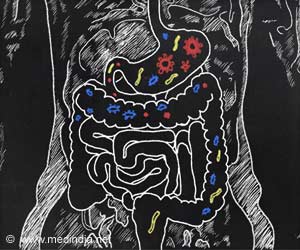A particular human gut virus that infects bacteria is a country-specific biomarker that changes as humans travel from place to place. There is a global similarity of these viruses in the human microbiome.

‘A normal human gut virus changes as the country that one has traveled to. But there is a global sameness of these viruses in the microbiome, and they are found to infect bacteria.’
Read More..




A San Diego State University researcher has found evidence that a virus nicknamed crAssphage, found in the guts of about 70 percent of the world's population, has a country-specific biomarker that changes rapidly as humans travel from one location to another.Read More..
Bioinformatics researcher and professor Rob Edwards' study is the first to examine the global similarity of viruses in the human microbiome. His research also suggests that a relative of this crAssphage was living in primates and may have evolved alongside humans for millions of years. The research will be published in Nature Microbiology July 8th.
Edwards and colleagues discovered the existence of crAssphage in 2014 by using computer software rather than petri dishes to analyze fecal samples. This data-driven approach indicated crAssphage was not only "a benign globetrotter," but also "an integral part of the normal human gut virome."
He challenged the scientific community to join him in a kind of global treasure hunt for the virus, also called a bacteriophage. The response was overwhelming: 117 researchers, clinicians and academics together analyzed 32,273 different crAssphage sequences from more than 65 countries on six continents and found the phage, a type of virus that specifically infects bacteria, to be "a cosmopolitan inhabitant of the human gut the world over."
Key to this discovery were the worldwide scientific community of volunteers who helped make it happen by testing water from sewage plants, rivers, lakes, and ponds in their native countries.
Advertisement
Advertisement













